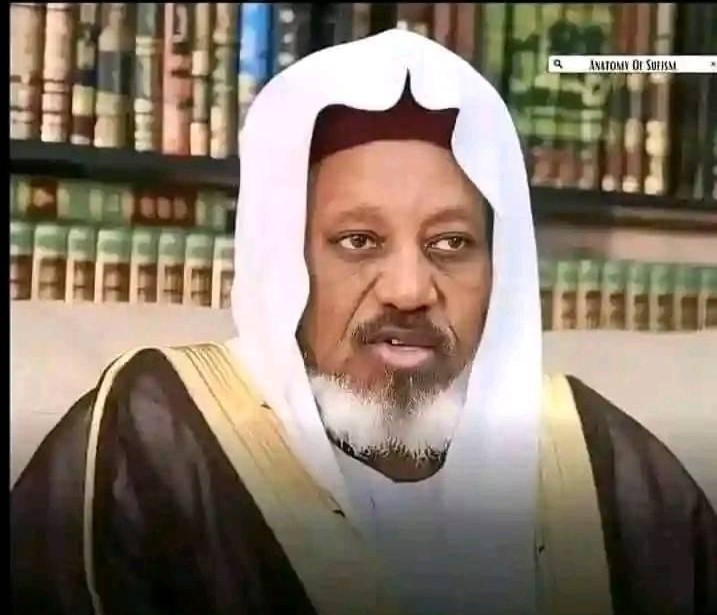In an age where public discourse often devolves into contentious debates and personal attacks, the enduring message of Maulana Sheikh Shariff Ibrahim Saleh Al-Hussaini, a call for peace, unity, and peaceful coexistence, stands as a beacon of hope.
For decades, Sheikh Shariff has exemplified the qualities of restraint, wisdom, and a commitment to fostering harmony within the Muslim Ummah, a legacy that has withstood the test of time.
This timeless character was once again on full display during a recent world press conference held at the Sheikh’s residence in Abuja. As journalists gathered eager to listen to Sheikh’s signature call for peace and unity.
Recognizing the potential for the ongoing debate surrounding the controversial Qur’an Festival which has attracted waves of yet another divisive exchange, we, his aides, sought to shield Sheikh from being drawn into the controversy, as one journalist seemed determined to ask questions about it.
Our subtle disapproval of the question did not escape the Sheikh’s notice. With his characteristic composure, the Sheikh asked, “What is it?” One of us explained, “We have agreed with the members of the press that Your Eminence should be spared from joining the ongoing debate about the Qur’anic Festival, and he is trying to ask you a question about it.”
Sheikh Shariff responded with the simplicity and wisdom that have become his hallmark: “What is the Qur’anic Festival about and where is it taking place?” Following a brief explanation, Sheikh smiled and offered a concise yet profound reminder: “Intentions matter in whatever we do, and in whatever we do, let us know that Allah is a witness to our intentions and actions.” He then seamlessly pivoted back to his usual message of calm, peace, and unity, sidestepping the contentious nature of the debate altogether.
This moment encapsulated the essence of Sheikh Shariff’s leadership. His innocence, focus, and ability to steer clear of avoidable debates struck a chord with everyone present.
After the conference, one journalist remarked on Sheikh’s remarkable ability to remain untainted by the divisive tendencies that often plague religious leaders and public figures.
The stark contrast between Sheikh’s approach and the conduct of many contemporary clerics could not be more evident. Across the Muslim world, the sanctity of the mosque as a place of worship and reflection is increasingly undermined by divisive rhetoric. Sermons that should inspire hope and guidance are too often filled with personal attacks, the vilification of public figures, and the sowing of discord within the community.
In this context, Sheikh Shariff’s leadership offers a much-needed reminder of what the role of a religious scholar should be. His refusal to engage in petty squabbles or to weaponize the pulpit for mundane, insult-provoking discussions is a testament to his understanding of the sacredness of his mission. Mosques are not battlegrounds for ideological supremacy; they are sanctuaries for the soul, spaces where worshippers come to seek solace, unity, and connection with the Divine.
Sheikh Shariff’s message is particularly urgent in today’s world, where divisions, political, social, and ideological, threaten to tear apart the fabric of our communities. By focusing on what unites rather than what divides, he reminds us of the Qur’anic principle that “the believers are but brothers”.
His leadership calls for a return to this foundational truth, urging clerics and laypeople alike to rise above the petty debates that distract us from our collective mission of worshiping Allah and building a just society.
As we approach the controversial Qur’anic Festival, we would do well to heed Sheikh Shariff’s reminder about intentions. Are our actions driven by a genuine desire to honor the Qur’an and strengthen the Ummah, or are they motivated by personal gain, political agendas, or the pursuit of fleeting fame? Allah is indeed a witness to our intentions, and it is this awareness that should guide our actions, both in public and private.
In Sheikh Shariff Ibrahim Saleh, we see a model of restraint, wisdom, and unwavering focus on the greater good. His ability to rise above divisive debates and maintain his commitment to unity is a lesson for all of us, leaders, clerics, and ordinary believers alike. At a time when the world seems intent on tearing itself apart, his call for peace, unity, and coexistence offers a path forward, one that is as timeless as it is urgently needed.
May we have the wisdom to follow his example.
Muhammad, legal practitioner, writes from Kano, Nigeria






